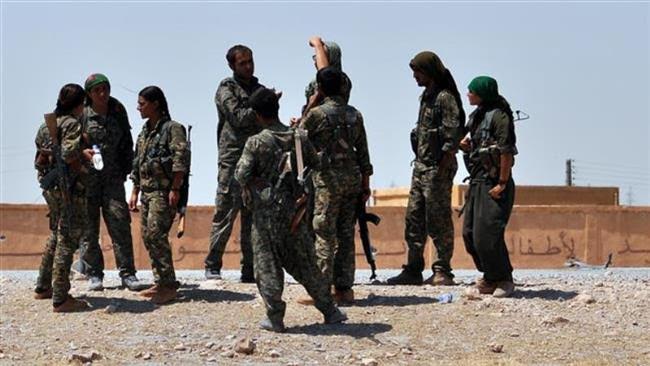Beirut – After proving its effectiveness in fighting ISIS in several northern and northeastern Syrian areas, Moscow on Monday entered the line of supporting Kurds, therefore, competing with the military support that the Kurdish People’s Protection Units (YPG) are receiving from the Washington-led international coalition.
The “the first agreement of its kind” was signed with Russia to train the Units’ fighters in northern Syria, YPG announced on Monday.
The group also uncovered a plan to expand its force to more than 100,000 fighters by the mid of this year with the aim of turning it into an organized force that resembles a traditional army.
The Units also said Russia is about to build a military base in northwestern Syria in agreement with the YPG, which controls the area. However, Moscow later denied the reports about building a military base in the Kurdish district of Afrin in northwestern Syria, saying it has no plans to spread new military basis in the country.
The Russian Defense Ministry said one of the branches of the Russian reconciliation center would be established in the Aleppo province in order to prevent violations of the cessation of hostilities in the region of contact between Kurdish militias and Turkey-controlled formations of the Free Syrian Army.
Russian forces were already present at the training camp in the Afrin region, one of three “autonomous” cantons that Kurdish authorities manage in northern Syria, YPG spokesman Redur Xelil told AFP.
Nasser Hajj Mansour, an advisor to the Syria Democratic Forces told Asharq Al-Awsat on Monday that the Russian support for Kurds is the result of the situation in the Afrin area. He said Afrin suffers from the attacks of ISIS and the Euphrates Shield factions, in addition to the absence of any alternative for the Kurds that can conduct the mission of fighting terrorism.
In Damascus, the regime’s heavy aerial bombing continued to pound the Qabun district and the eastern outskirts of the capital, after they were able to regain grounds in some areas between Jobar and Abbasid.
The battle in Damascus came amid fears that it would further strengthen the Iranian presence in Syria.
“Iran always reaps what the Russians and the regime forces already sowed,” said Samir at-Taqi, General Director of the Orient Research Center.
He said that what happens in the north can also be applied in Damascus, where Iranian militias fill the capital, contrary to reports that Iranian forces were being moved out of the area.
“Their presence will be more obvious in the battle of the capital,” al-Taqi said.
